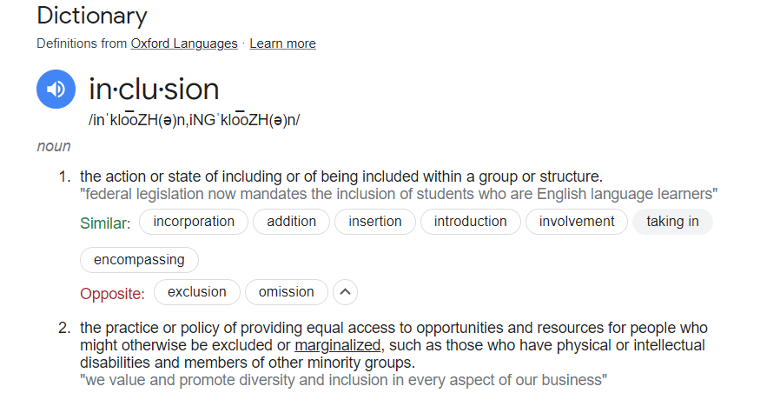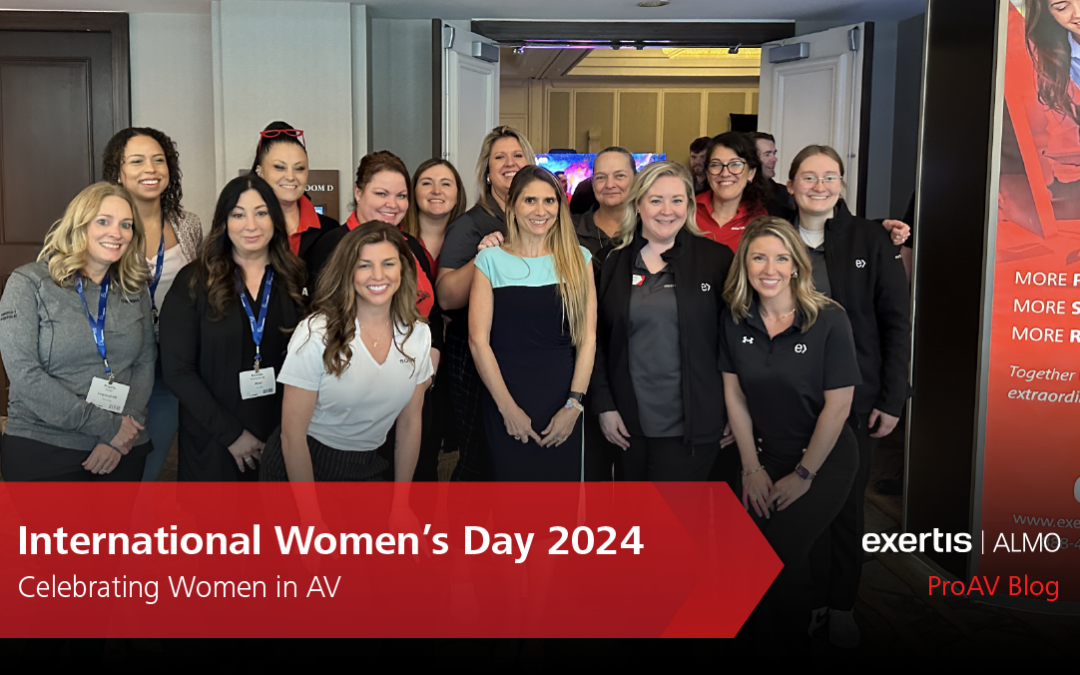“Change is inevitable. Progression is a choice” – Sonya Teclai.
International Women’s Day 2024 | Friday, March 8th
The theme for International Women’s Day (IWD) 2024 is ‘Inspire Inclusion’. What does that mean? What does it look like? Why do we care? All great questions. Let’s dive in:
- Inspire (verb) fill (someone) with the urge or ability to do or feel something, especially to do something creative.
- Inclusions (noun) the action or state of including or of being included within a group or structure.
Prior to DE&I initiatives being something that we talked about in the corporate world, inclusion just meant the above. We have gotten to the point where inclusion definitions include a ‘line 2’ that specifically mentions the marginalized groups in our society to be included in the conversation, society, group, etc. – which begs the question: why did we need to qualify this definition further?

Despite the progress that has been made toward equality in the last handful of decades, and despite changing the literal definition of the word, we still have these types of statistics:
 57.4% of women now participate in the workforce (U.S. Bureau of Labor Statistics), yet only 10.4% of Fortune 500 CEOs are women, and less than 1% are women of color
57.4% of women now participate in the workforce (U.S. Bureau of Labor Statistics), yet only 10.4% of Fortune 500 CEOs are women, and less than 1% are women of color- Women have outpaced men in obtaining college level education for decades (41% women vs. 36% men), women earned 60% of the master’s degrees and 51.9% of PHDs in the 2020/21 school year, yet in almost every field make up less of the workforce with lower pay for the same level of education
- If we look specifically at the Pro AV / IT industry, the numbers get even more stark: Women make up only 11% of the U.S Pro AV market. If you compound that with the fact that non-white workers in general make up only 15%, that means that non-white women are an extreme minority in our industry (source: AVIXA)
Ok so I bored you with the stats. What can we do to change some of these positively?
Be proactive, creating or obtaining equity is not a sideline sport. It requires constant tweaking, maintenance, and effort on everyone’s part.
Be a sponsor, not just a mentor. Speak about the accomplishments of women when they aren’t in the room. Encourage them to speak up, pause for their input, and allow them to be heard when you have the power to do so. If you are a leader, and a message doesn’t need to be heard from you, lift up your team and let them get the experience or airtime. These are small steps that cost you nothing but provide a lot of value to the women in your workforce.
Don’t be afraid to step out of your comfort zone. In many aspects of life, we tend to gravitate toward people who look, talk and act like us. While homogeny can breed comfort, it doesn’t encourage or inspire inclusion. To inspire is a verb, and verbs require action. You must make a POINT to include people that sometimes look or sound different than you. Studies have shown that companies with women in the C-Suite on average have a 15% increase in profitability. There are many theories on why this is, but perhaps differing perspectives have tangible merit.
 Find ways to make it natural. For example, Exertis Almo’s very own Lynn Buschman (Manager, HR Learning and Development), has found a more natural, or even subliminal, way of incorporating inclusion. She sets the L&D schedule and when there are topics that are TRADITIONALLY male dominated, she makes sure to highlight the non-male team members that are still highly qualified, but otherwise not as visible, to speak or teach on the topics. The more familiarity everyone gets from the topics being presented by someone that looks different, the more natural it feels.
Find ways to make it natural. For example, Exertis Almo’s very own Lynn Buschman (Manager, HR Learning and Development), has found a more natural, or even subliminal, way of incorporating inclusion. She sets the L&D schedule and when there are topics that are TRADITIONALLY male dominated, she makes sure to highlight the non-male team members that are still highly qualified, but otherwise not as visible, to speak or teach on the topics. The more familiarity everyone gets from the topics being presented by someone that looks different, the more natural it feels.
Though its IWD, inclusion can go both ways. Women make up 76% of teachers in the U.S., but many studies have cited the benefit of having male teachers in the primary school setting, creating positive role models and outcomes for their young pupils. We can inspire women to look toward the more male dominated fields, while simultaneously encouraging men to consider fields that are traditionally dominated by women to offer their unique perspectives in those areas. Remember: inclusion is meant to include anyone into a group or structure that typically wouldn’t be there.
Create policies that support women staying in the workforce. As shown before, more than half of the women in the United States are participating in the workforce, and the majority of them are still carrying the lion share of child-rearing and other domestic tasks, which leads to burnout and a mass exodus from the workforce. Creating parental leave policies for both parents, flexible work arrangements, and other policies can help ease the burdens that take many women not only out of the running for promotions, but the workforce in general.
There is no ‘one way’ to be an ally to the marginalized people in our society. If you have not experienced discrimination or exclusion before, great! Nothing makes me happier to hear. Millions of women and other people have felt they were on the outside looking in for their lifetime, so if you have the ability, you can make 2024 the year you #inspireinclusion.










